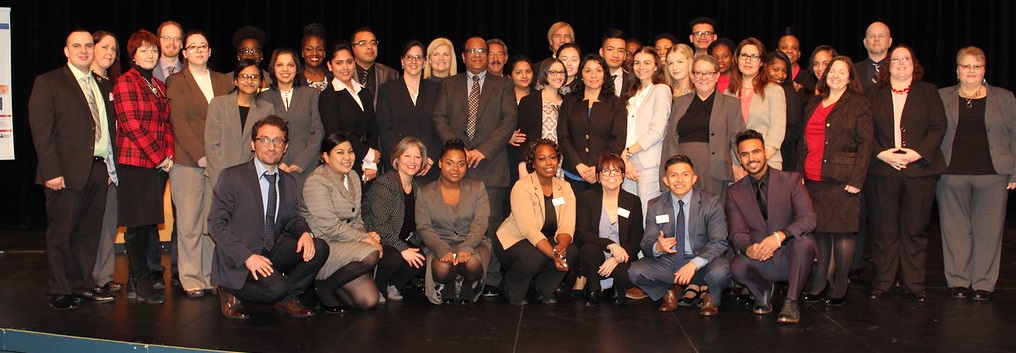By Joshua Holland
NORTHWEST ASIAN WEEKLY

Pulling yourself up by your bootstraps is harder than it used to be.
Securing a job without a degree or applicable employment experience requires knowing the ins and outs of specific industries. For many, this can be an overwhelming and defeating experience that leads to being locked out of lucrative careers they might otherwise be good candidates for. On the employer side of the house, hiring skilled labor takes time and dedicated training resources. These factors slow down the hiring process for everyone involved.
Enter YWCA Seattle King Snohomish. In 2011, it brought BankWork$, a nationally recognized training program that started in Los Angeles to help people discover and unlock new careers in the financial sector.
What started as a program to train bank tellers has evolved over the years into an intensive eight-week training program designed to help people discover various banking careers, ranging from customer service focused roles, to personal bankers, and even bank leadership.
“BankWork$ gets its graduates in the door of financial institutions,’’ said Derek Pender, KeyBank’s local area retail leader and vice president. “Myself, along with a dozen other banks, participate throughout each class to look for talent. Many of the graduates frequently have job offers before they graduate. Typically, out of a graduating class of 40 students, five have secured jobs before the program has completed.’’
Much of the Seattle program’s success can be attributed to Mercedes Rippel, YWCA BankWork$ Program Manager, and her team. Prior to joining BankWork$, Rippel was a banking executive who oversaw major bank operations and trained professionals ranging from tellers to bank leadership. With almost 30 years of bank experience under her belt, Rippel is able to guide students through the ins and outs of the industry, helping them develop a strong understanding of what it expects, and how to set themselves up for success.
In addition to Rippel’s guidance, her team of instructors and career navigators help students throughout the process to make sure they walk in class with their head straight and ready to learn from day one. This includes helping them manage issues or challenges that might exist outside of the classroom, like securing childcare or finding reliable commute options. Over the years, Rippel and her team have found that this additional life support lays the future groundwork for success in the workplace.
“This program, these students, if you were to see them from the first day to the end of the first class, you wouldn’t recognize the students towards the end of the class,” said Rippel. “The way they walk, talk, act, and present themselves is entirely different. You’d think they are the bankers at graduation.”
Backgrounds for students entering the program vary. Some come from service industry jobs, stints as stay-at-home parents, and even as extreme as people experiencing homelessness or recovering from abusive situations. The program is open to anyone regardless of gender, race, or economic standing.
“Students come from across the board,” said Pender. “You don’t need a background in banking. We’re looking for someone who has phenomenal customer service skills, a go getter, and can thrive in a team environment.”
After completing the program, graduates go on to impact lives of people in their communities by helping them with important financial decisions, such as establishing a savings account or college tuition fund.
This newly acquired knowledge strengthens communities and helps graduates disseminate bank literacy throughout their network of family and friends.
“It’s often a transformation for students,” said Rippel. “Before the program, many don’t feel like they’re worth anything. But then they get a job from the program that frequently tells them they’re amazing, phenomenal, we’re going to promote you. They go from one extreme to another; feel like they’re worth something. It’s a different feeling.”
A full list of qualifications and information about how to sign up for the program can be found on the YWCA website. Classes for the next program begin on July 9th. For more information, visit
ywcaworks.org/programs/bankwork.
Joshua can be reached at info@nwasianweekly.com.



